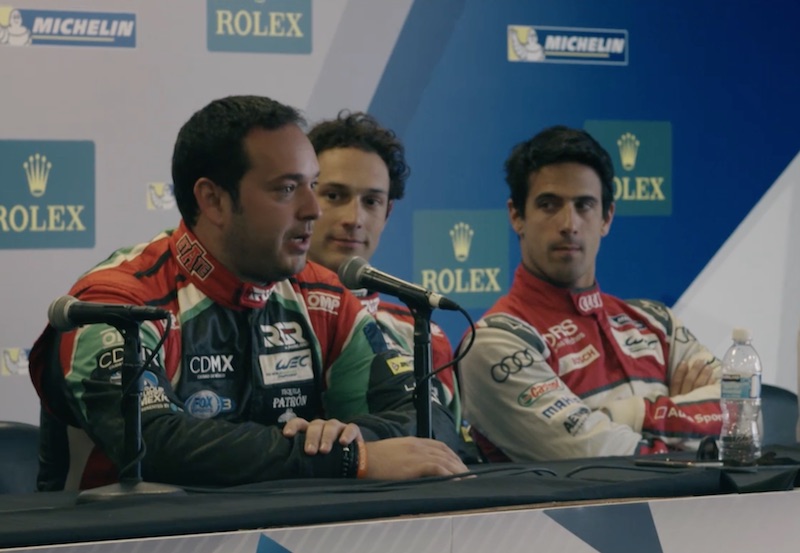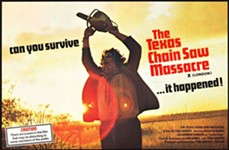Behind the Wheel With Documentary The Gentleman Driver
The world of millionaire endurance racers in The Gentleman Driver
By Richard Whittaker, 8:01PM, Wed. Feb. 6, 2019
Motor racing is a business, but new documentary The Gentleman Driver takes its name from the sport’s last connection to its amateur roots. In endurance events, where teams field multiple drivers taking turns in the same vehicle, at least one person behind the wheel cannot be a full-time racer.
However, this isn’t just millionaires playing race cars. The gentleman drivers must both finance their place on the team – usually by bringing in multimillion-dollar sponsorships – and justify their track time. Executive producer and racer manager Toni Calderon said, “It’s just crazy that these very successful businessmen will take off 70, 80 days in their year from their professional lives to go race against the best professional drivers in the biggest races in the world.”
Not that the drivers are truly amateurs. Before opening Arkansas State University’s campus in Querétaro, Mexico, Ricardo Gonzalez was a second-generation driver, racing F3 and IndyCar: But after taking a hiatus to establish his business, now he drives for RGR Sport by Morand, and takes that job seriously. He said, “A gentleman driver can make the car not finish the race.”
Parts of the documentary were shot in Austin at the Circuit of the Americas. Molecule Labs founder and driver Mike Guasch said, “We’ve both driven it, and it is a very technical, very modern, proper racetrack.”
Gonzalez called it “an amazing track,” adding, “I think they did a really very good job of putting together different corners. You have the very fast stuff, downhill, uphill.” If he could make one tweak, it would be on the slow, winding stretch before the grand plaza. “I could take a corner out of that area.”

Austin Chronicle: So how do you balance the needs of running a company with the price tag of being a gentleman driver?
Mike Guasch: If you can build a brand for yourself, and you have a business that has connections, you can bring in sponsorship money. But if you go to the highest level of motorsports, every driver is bringing in money, one way or another. [Often] through a sponsor – this guy knows a guy at Pepsi, and then Pepsi is sponsoring the team. The team isn't bringing ion money, you're bringing in money, so you have to have relationships, and you have to cut deals that make sense to justify the amounts of money that's being spent to put us on the track
AC: It's the old line about Ferrari in Formula One, that MIchael Schumacher earned his place as a driver, but paid for it through baseball cap sales.
MG: Right. You've got to start somewhere – family money, you create you own money – and then you start building relationships and you start building a name for yourself, and it just starts to snowball. It's a job, just doing that part. ... Putting it out of your own pockets, it's just ludicrous.
AC: There are probably a few people who try.
MG: But typically they're not a very good driver. There's a lot of those guys who've got the money to write the cheque, but they're not training, they're not taking it serious, they're not really paying their dues, and they haven't worked their way up the ladder so they can justify that seat, and then that gives the gentleman driver a bad name.
Ricardo Gonzalez: It's difficult to answer, because I've been in racing all my life. I started racing go-karts when I was 10 years old, moving up the ladder, and then I had to stop racing for about 10 years, so that's the reason I came back as a gentleman driver. But being that involved in racing, you know the rules, and you know what championships are out there, and you know a lot about it. So I've known about this for a long time.
MG: Mine was a little different. I started racing younger, took time off to have a family and start a business, came back to racing in my 40s, and I said, OK, I want to drive cars – because I drove motocross earlier. I just knew you had to pay to race, so I just started to pay my way, but then when I got into endurance racing, I didn't realize that you had multiple drivers, and we all paid our different ways. That's where the gentleman driver comes in [and] it's a concept that's very unique to endurance racing.
AC: So what's the appeal to you of endurance racing?
RG: For me it's all the strategy that goes behind the racing, and the quality of the cars we're racing. We can compare our technology to the technology in F1. So you're racing the most technologically advanced cars on the best tracks, and all the strategy and all the information that the teams are handling, makes it very interesting to be involved.
MG: The other component for me personally was that endurance, for me physically, is better than sprint racing. Sprint racing, it's all out for 30 minutes or 15 minutes or 45 minutes, and my physicality works better for long distance. I can go two or three hours at 95% and not fade. That's worked really well for me.
AC: That's one thing that's underestimated about motorsports, that it's physically demanding.
MG: It's ridiculously tough, especially as well get older – that's why we train our asses off. And mentally as well: as soon as your physicality drops, your brain starts dropping. It's just a natural mechanism in your body – as you get tired, you brain gets more tired, so you cannot get get physically tired, or you'll start to get foggy.
AC: Any sport evolves, so what's the future of the gentleman driver and their role in the sport?
RG:
MG: I think it's elevating. The amount of gentleman drivers that are just getting better and better and better, and they're getting younger. They call them gentleman drivers, but they do have ratings, especially on international series. You've got gold, silver and bronze drivers, and you mix up your race car drivers with a certain configuration. ... 2016, we won the European championship by getting the right guys with the right ratings into the car. The gentleman driver is usually the one paying a little bit more, but it's becoming a very important part of the winning strategy.
I'm considered a bronze driver, but a bronze driver can also be a young kid, coming out of karting, who's never driven a race car. We get those occasionally, and their super-fast. ... The bronze driver can be a guy who hasn't driven for a long time, and he gets downgraded to bronze, and all of a sudden he gets down-graded [and becomes] a secret weapon.
RG: As the series gets stronger and stronger, the gentleman driver gets stronger and stronger. We're getting a lot of younger guys who have not had the opportunity to go out and be seen by factory teams. So they come in as gentleman drivers, just to get that opportunity, and they become golds quite fast.
They are as fast as the pros out there, [but] they're lacking a little bit of experience. They tend to make mistakes, and get into trouble often, but the speed is there.
MG: That's an interesting point, because we do bring in these guys are that young guns, but what I find is to our advantage is that we have a little more wisdom and a little more experience. They'll come in and they want to prove something – we get that with golds too, that these guys come in and they're getting paid, and they have to prove their worth, and they take a lot of chances. And in this kind of racing, you can't take big chances. It's about finishing. You can't win a race by losing it in the first corner.
These guys, they'll dive bomb in, do something stupid. You've got to back off, pace yourself, and finish this race. You've got to take this car, don't beat the shit out of it to the point that you hand it over to your co-driver, and half the bodywork's falling off. He's going fast, he's making up half a second a lap, but he's beating the car up, and it may not last.
So the young guys come in and go, "I've gotta prove how fast I am. I've got to show a lap time, or I'm not going top have a job next week, or next year." That's to our advantage, because we can be calm, collect, do a good job, bring the car home, and win races.
The Gentleman Driver is available now on Netflix.
A note to readers: Bold and uncensored, The Austin Chronicle has been Austin’s independent news source for over 40 years, expressing the community’s political and environmental concerns and supporting its active cultural scene. Now more than ever, we need your support to continue supplying Austin with independent, free press. If real news is important to you, please consider making a donation of $5, $10 or whatever you can afford, to help keep our journalism on stands.
Richard Whittaker, March 28, 2020
Richard Whittaker, March 23, 2020
May 23, 2025
May 23, 2025
Now Streaming in Austin, The Gentleman Driver, Netflix











